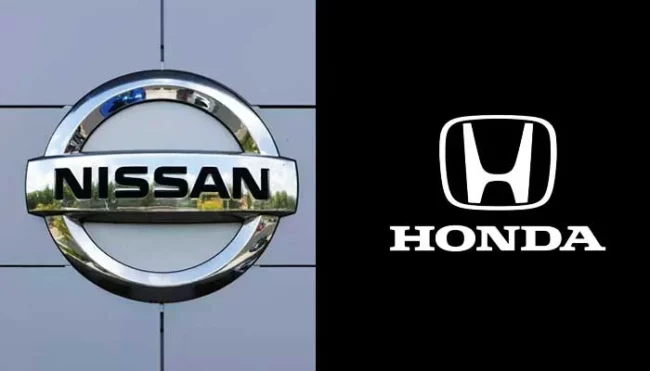Two Japanese automobile brands, Honda and Nissan, are exploring a potential merger, marking a significant development in the automotive industry.
In a joint statement on Tuesday, the companies confirmed ongoing discussions but withheld specifics, including a timeline or details of what the merger might entail.
The statement reads, “As announced in March, Honda and Nissan are exploring various possibilities for future collaboration, leveraging each other’s strengths. If there are any updates, we will inform our stakeholders at the appropriate time.”
The initial report of the talks was published by Nikkei on Tuesday, sparking industry-wide speculation. Honda and Nissan also revealed that Mitsubishi is involved in these preliminary discussions, potentially introducing a third major Japanese automaker to the mix.
While Mitsubishi has not yet commented, the possible merger signals a strategic realignment in Japan’s automotive sector.
The talks come as Honda and Nissan face mounting challenges in the global market. In March, the automakers announced a collaboration on electric vehicles, followed by an August agreement to work on battery technology.
However, both brands have struggled to maintain their footing in the competitive Chinese market, which is now dominated by domestic brands offering better value and advanced electric vehicle technology.
Nissan’s challenges extend beyond market performance. The company is still recovering from the fallout of former CEO Carlos Ghosn’s dramatic exit, which disrupted its alliance with Renault and Mitsubishi.
Once a powerful global partnership, the alliance weakened significantly after Renault reduced its ownership stake in Nissan. Financially, the company reported a staggering 90% drop in operating income between March and September.
According to CNN, despite its larger scale, Honda faces its own hurdles. The company has pledged to sell only zero-emission vehicles in major markets by 2040 but has struggled to meet its goals. Factors such as low gas prices, insufficient charging infrastructure, and fierce competition have slowed the adoption of electric vehicles in key markets like the United States and Europe.
ALSO READ TOP STORIES FROM NIGERIAN TRIBUNE







